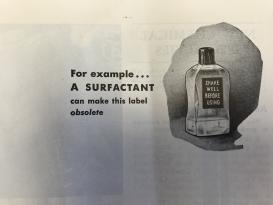This project seeks to understand how human technologies are changing the biological world, to the extent that we can speak of an anthropogenic biology—evolutionary, physiological, and behavioral shifts on a large scale, shaped by human activities from antibiotic use to light at night. Much like anthropogenic geological shifts such as human-mediated climate change, the ability to measure and conceptualize human sociotechnical activity as genetic, physiological, ecological, and evolutionary change across diverse life forms confounds some traditional understandings of the separate domains of the natural and social sciences. Historians of science are more used to tracing shifts in concepts and instrumentation and the social context of science than they are adept at understanding how the very matter in the petri dishes and microscopes and clinical subjects is undergoing historical transformation. Can historians of biology, in conversation with the natural sciences, also engage the material changes in the living world driven by techno-scientific activity? Drawing on in-depth exploration of examples such as antimicrobial resistance, this project explores and proposes a new genre to complement and complicate the history of biology: the biology of history. Antimicrobial resistance is a good example to work with, because the industrialization of microbial metabolism in the production of antibiotics and the synthetic chemistry of disinfectants has profoundly changed the selective environment in which microbes live. Events such as armed conflict and worldwide viral pandemics drive the mass deployment of these forces in microbial survival and adaptation and can be seen in genetic and phenotypic shifts in cells and populations. Such examples also raise the larger questions of science and society that this project grapples with: what happens to scientific inquiry, once the object of study is no longer Nature, but nature-after-industrialization? What legacies do techno-scientific concepts leave via the matter that future researchers study?

Detail from a 1950 advertisement for surfactant products from Antara Products. Surfactants—surface-active compounds—are amphiphilic molecules used widely in antimicrobial, waterproofing, anti-foaming, and pesticide and herbicide formulations.
Project
(2021-2022)
